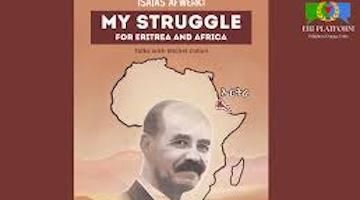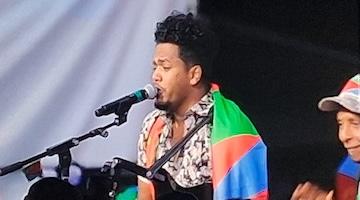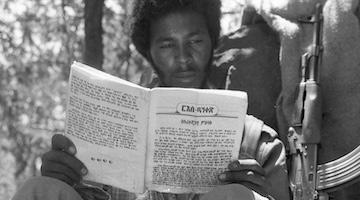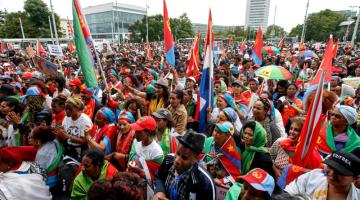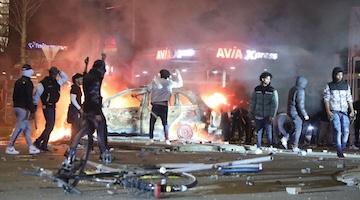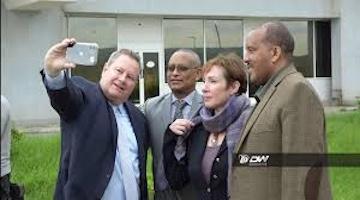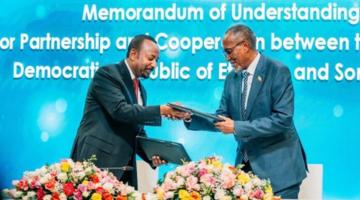Ethiopian and Eritrean Americans and their supporters marched down Market Street, San Francisco, to protest US hybrid warfare against their home countries.
The removal of Twitter accounts advocating for peace in the Horn of Africa shows the connection between the state and big tech companies. Freedom of speech is an illusion when communications are controlled by corporations which follow governmental dictates.
At approximately 5 am PST on November 29th, I awoke to an almost uninterrupted buzz of text messages from my cell phone. I turned to my nightstand, put my glasses on and quickly learned through concerned friends that my Twitter account had been taken down. Naturally, I logged on to Twitter. From one account to the next, including my "burners", I received an error message indicating that each account had been suspended. I was given no explanation.
How could Twitter take down all my accounts without any explanation? What did I do to deserve such an honor? It didn't take long for me to discover that I wasn't alone. Apparently, Twitter had suspended about a dozen other accounts from the Horn of Africa and its diaspora that had been associated with the nascent #NoMore movement.
What exactly is the #NoMore movement? On November 1st, a group of activists, fed up with almost a year of war between the US-backed Tigrayan People’s Liberation Front (TPLF) and the federal government of Ethiopia, initiated a campaign calling for “no more” war, “no more” support for TPLF by the US, “no more” disinformation by the mainstream media and “no more” sanctions on Ethiopia, Eritrea and Somalia. Accordingly, these demands were popularly expressed in the hashtag #NoMore.
Almost instantly, #NoMore took social media by storm, leading to a first round of crackdowns by Twitter of popular anti-TPLF activists like Araya Tesfamariam, who had amassed almost 100K followers in about four months. TPLF, which openly admitted to starting the war on national TV, was, at the time, on the offensive and committing war crimes in the Amhara and Afar regions.
Rather than rein in TPLF and address the legitimate concerns of Twitter activists, the Biden administration and the Western media, which provided diplomatic cover for political support for a seemingly unaccountable TPLF, opted instead to double down in its support for the rebel force. Using misleading images from May 2021, televised CNN reports claimed that TPLF was on the “outskirts” of Ethiopia’s capital city Addis Ababa despite being more than 300 kilometers away.
These absurd claims led to popular anger and protest against CNN in Addis Ababa with protestors hoisting placards reading “No More” and “CNN Fake News”, followed by another round of protests only a day later in Washington, DC with almost identical placards. One week later, peace activists on Twitter, organizing themselves on messaging apps, held a Global Day of Action in 27 cities on November 21st exclaiming “No More” in solidarity with the Addis Ababa and DC protestors. I was among these activists. We used the @HornOfAfricaHub account to organize ourselves. The Black Alliance for Peace and the ANSWER Coalition joined us in the streets and provided messages of solidarity, some of which went viral on Twitter.
Since the November 21st action, #NoMore took Africa and the world by storm. The hashtag was so popular that it was not only the leading trend in Ethiopia but also in the US. The Head of Site Integrity for Twitter stated, “Safety is our top priority. In light of the rapidly changing situation in Ethiopia, we’ve temporarily disabled Trends to help reduce the spread of potentially harmful content.” How was the call for no more war and US intervention “harmful content”?
It is within this context that my accounts were taken down. The actions by Twitter were likely part of a second wave of the #NoMore crackdowns. It’s worth noting that only the night before my suspension, I used the hashtag #PasPlus in reference to a tweet about the unceremonious arrival French troops in Niger. “Pas Plus” means “No More” in French.
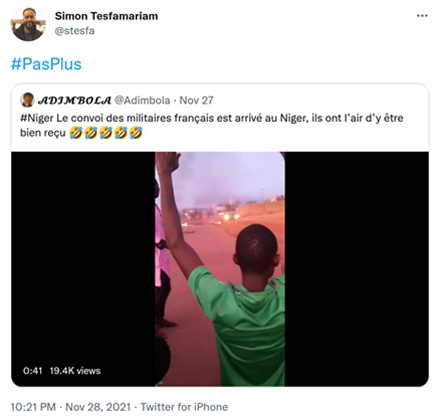
I, like many other activists in the Horn of Africa, would like to expand #NoMore to not only address issues in the region but also other parts of Africa. Many Africans believe #NoMore is the timely and necessary expression of resistance on the African continent. Imagine the power of 140 million people of the Horn (including Ethiopia, Somalia, Eritrea and Djibouti) leveraging their Twitter presence to take up other African issues that would otherwise go unnoticed due to lower population numbers and no unifying hashtag. Under #NoMore, millions of Africans are united on Twitter and ready to challenge deadly US militarism and the Western media narratives that manufacture consent for war on its behalf. We are essentially a roving digital army of peace. I believe that this is seen as a threat to US ruling class interests, which run diametrically opposed to the interest of the US masses.
As one of the many organizers behind #NoMore, I believe that I, and others like me, are being targeted because we are uncompromising proponents of peace.
Simon Tesfamariam is an Eritrean American medical doctor and writer living in New York City with a long history of organizing and activism within the global Eritrean community. He has lived, worked, and taught in Eritrea, volunteering in Eritrean hospitals and lecturing at the University of Asmara. He is currently co-organizing a webinar on how US sanctions will affect Eritrea and Ethiopia for Sunday, December 12, 3 pm Eastern.




